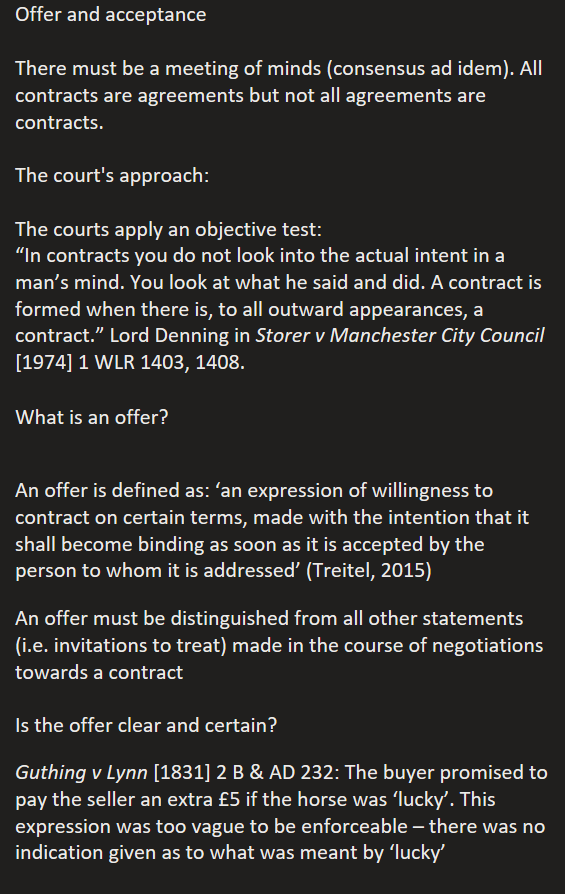offer and acceptance
Offer and acceptance
There must be a meeting of minds (consensus ad idem). All contracts are agreements but not all agreements are contracts.
The court's approach:
The courts apply an objective test:
“In contracts you do not look into the actual intent in a man’s mind. You look at what he said and did. A contract is formed when there is, to all outward appearances, a contract.” Lord Denning in Storer v Manchester City Council [1974] 1 WLR 1403, 1408.
What is an offer?
An offer is defined as: ‘an expression of willingness to contract on certain terms, made with the intention that it shall become binding as soon as it is accepted by the person to whom it is addressed’ (Treitel, 2015)
An offer must be distinguished from all other statements (i.e. invitations to treat) made in the course of negotiations towards a contract
Is the offer clear and certain?
Guthing v Lynn [1831] 2 B & AD 232: The buyer promised to pay the seller an extra £5 if the horse was ‘lucky’. This expression was too vague to be enforceable – there was no indication given as to what was meant by ‘lucky’
